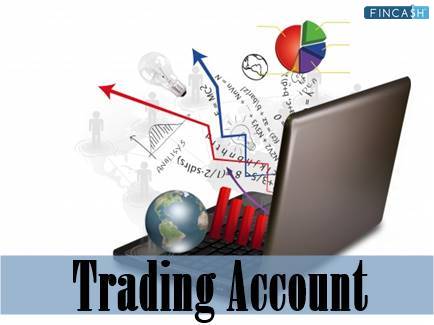In the dynamic realm of finance, a trading account serves as a gateway for individuals to participate in the thrilling world of buying and selling financial instruments. Whether it’s stocks, currencies, commodities, or derivatives, a trading account provides the means to execute trades, ninjatrader, make investments, and potentially generate returns. In this article, we delve into the concept of a trading account, its functions, and how it empowers individuals to engage with various financial markets.

Defining a Trading Account
A trading account is a specialized financial account that facilitates the buying and selling of various financial instruments in the global markets. It is provided by brokerage firms or financial institutions, enabling individuals to execute trades electronically and access a range of investment opportunities.
Key Functions of a Trading Account
- Trade Execution: The primary purpose of a trading account is to execute trades. Investors can buy or sell securities and financial instruments based on their investment goals and market analysis.
- Portfolio Diversification: Trading accounts allow investors to diversify their portfolios by investing in different asset classes, sectors, or geographic regions.
- Real-Time Market Access: With a trading account, investors can access real-time market data, including prices, charts, and news, helping them make informed trading decisions.
- Risk Management: Investors can implement risk management strategies, such as setting stop-loss orders or position limits, to protect their investments from substantial losses.
- Research and Analysis: Many trading platforms offer research tools and technical analysis capabilities to assist investors in evaluating potential trades.
Types of Trading Accounts
- Equity Trading Account: This type of account is designed for trading stocks and equity-related instruments. It allows investors to buy and sell shares of publicly traded companies.
- Forex Trading Account: Forex (foreign exchange) trading accounts are used for trading currencies. Investors can speculate on the price movements of currency pairs.
- Commodities Trading Account: Commodities trading accounts enable investors to trade physical commodities such as gold, oil, agricultural products, and more.
- Derivatives Trading Account: Derivatives accounts allow investors to trade financial contracts derived from underlying assets, such as options, futures, and contracts for difference (CFDs).
- Cryptocurrency Trading Account: With the rise of digital assets, cryptocurrency trading accounts provide access to the trading of cryptocurrencies like Bitcoin, Ethereum, and others.
Opening a Trading Account
- Choose a Brokerage: Select a reputable brokerage or financial institution that offers the type of trading account you’re interested in.
- Complete Application: Provide necessary personal and financial information, including identification documents, to open the account.
- Deposit Funds: Fund your trading account with the required amount of capital.
- Trading Platform: Access the trading platform provided by the brokerage to start executing trades.
Conclusion
A trading account is a versatile tool that empowers individuals to engage with the exciting world of financial markets. It provides a platform for executing trades, exploring investment opportunities, and potentially achieving financial goals. As with any investment endeavor, it’s important to conduct thorough research, understand the risks involved, and develop a trading strategy that aligns with your financial objectives. Whether you’re a seasoned investor or a newcomer to the world of trading, a trading account can be your ticket to navigating the complex and dynamic landscape of global finance.

